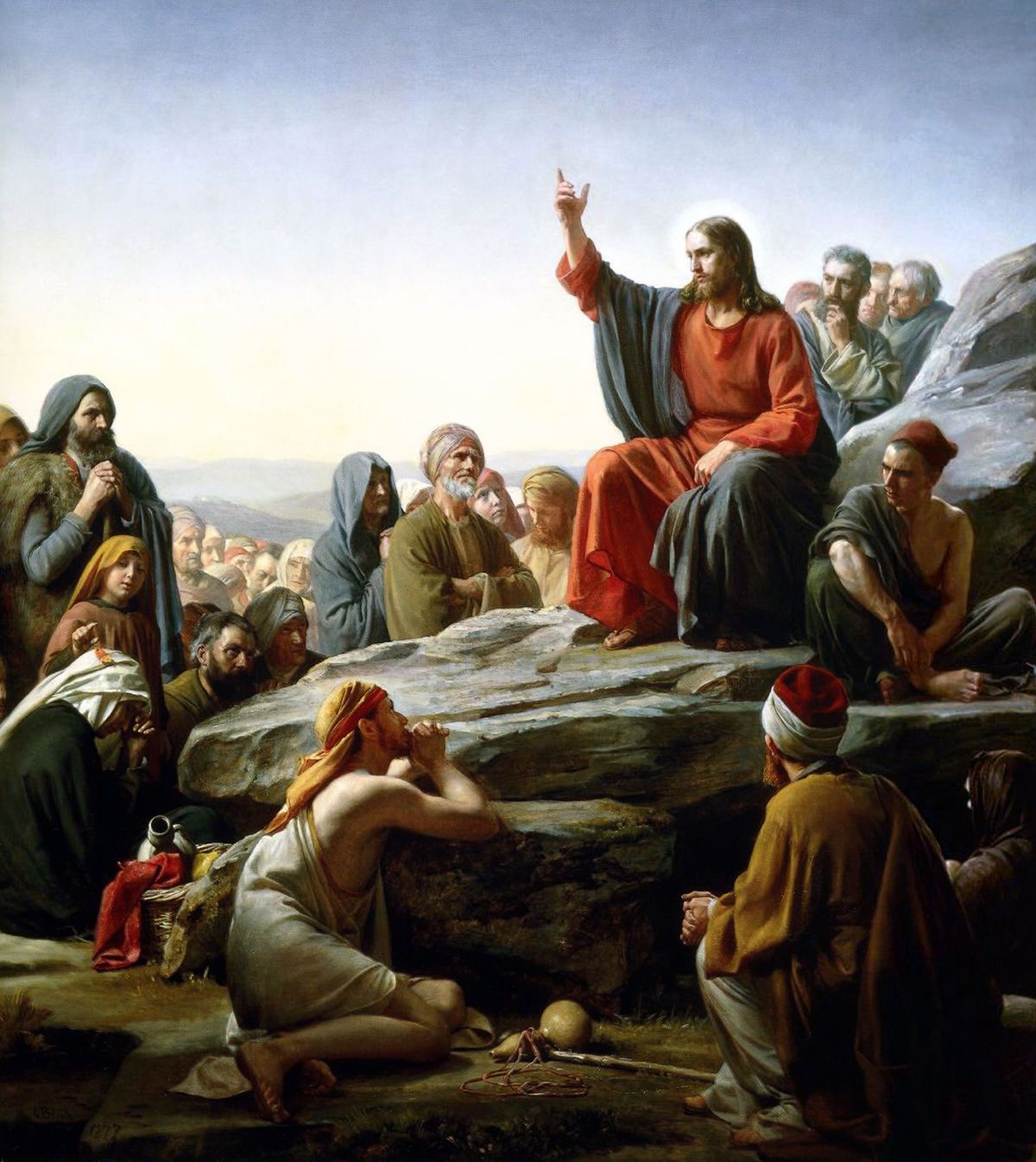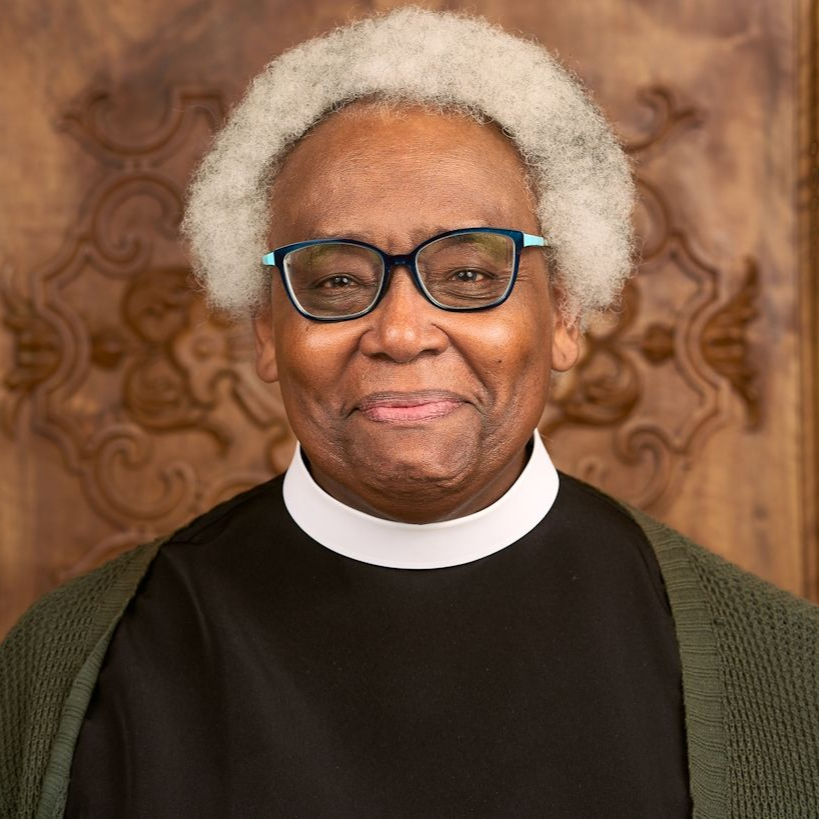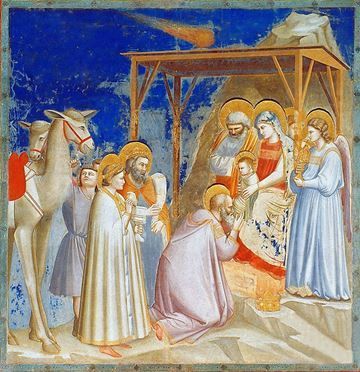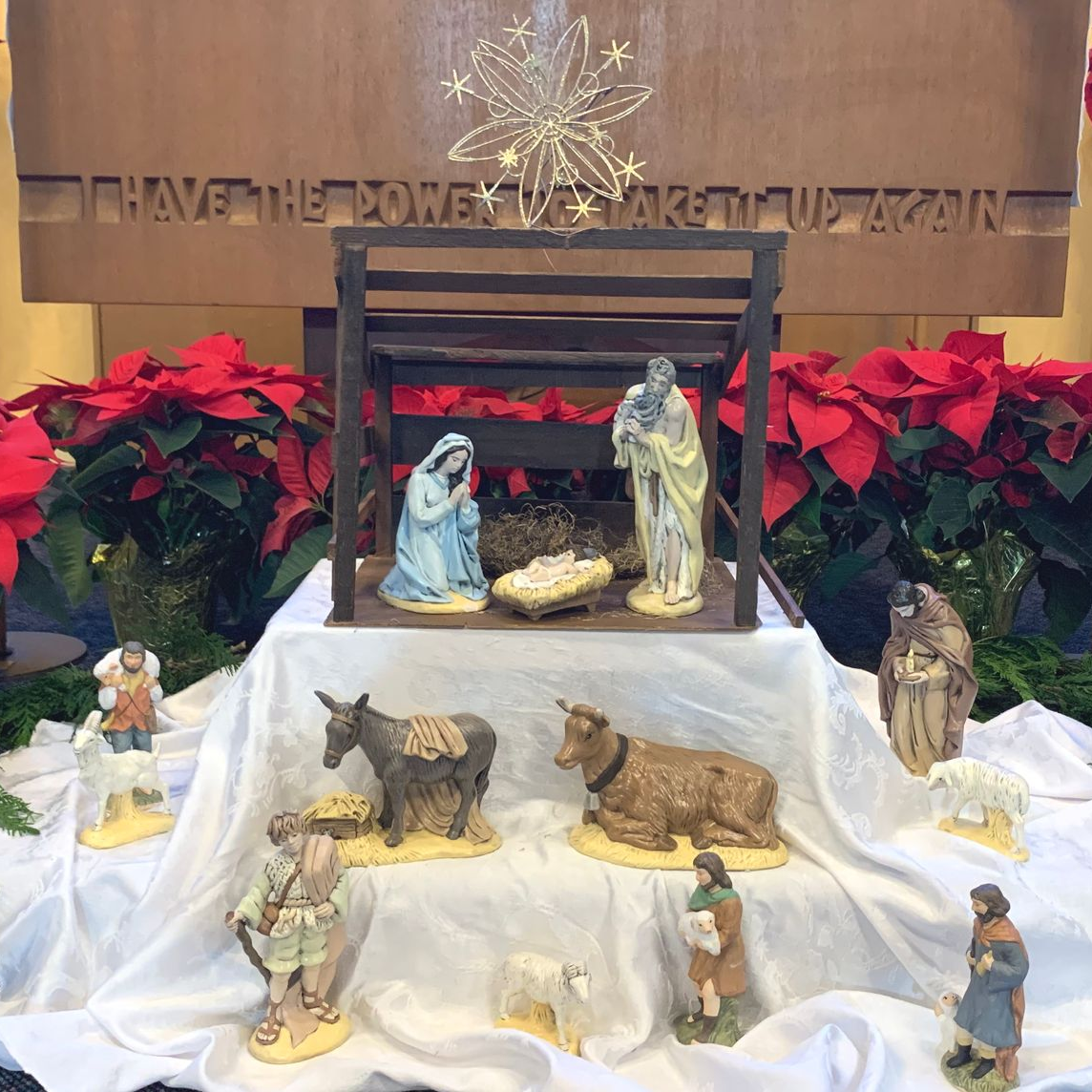A Place for Despair
Christianity begins with despair, but it doesn’t leave us stuck there.
2025-01
Sermon preached at Church of the Good Shepherd, Federal Way, WA
www.goodshepherdfw.org
by the Rev. Josh Hosler, Rector
The First Sunday of Advent (Year C), December 1, 2024
Jeremiah 33:14-16 ;
Psalm 25:1-9 ;
1 Thessalonians 3:9-13 ;
Luke 21:25-36
Bishop Augustine of Hippo, one of the most famous and prolific theologians in the history of Christianity, lived during the time when the Roman Empire was coming apart at the seams. In a sermon preached in the year 400, he wrote:
“Let us not then faint, my Brethren: an end there will be to all earthly kingdoms. If that end be now, God knows. For perhaps it is not yet, and we, through some infirmity, or mercifulness, or misery, are wishing that it may not be yet; nevertheless will it not therefore some day be? Fix your hope in God, desire the things eternal, wait for the things eternal … Christ did not come down into the flesh that we might live softly; let us endure rather than love the things present.”[1]
Ten years later, the Visigoths sacked Rome. Twenty years after that, the Vandals besieged Augustine’s hometown of Hippo in Northern Africa. An old man by then, Augustine died of natural causes in the midst of that siege. I love this quote of his: “Let us endure rather than love the things present.” It’s such an understated way to acknowledge the facts without giving in to despair.
In the long run, our very existence on this earth is tragic: everything and everyone dies. Everything we create and everything we love will fall apart, either before our eyes, or after we ourselves have fallen apart and returned to dust. The human experience is fundamentally tragic because it always, always ends.
And more often than not, the last moments of our lives are not at all the happiest, most hopeful, most contented times we have ever experienced. At the end of our lives we usually feel reduced, compressed, somehow less than we were in our full glory. You know it’s true. You’ve seen it. I know I have. Many people fall into despair toward the end of their lives.
Christianity begins with despair because despair is at the center of the experience of being human. Christianity begins with the despair of Jesus on the cross, but it doesn’t leave us stuck there.
So we Christians begin the calendar of our year with despair. The Prophet Jeremiah wrote from amidst the Babylonian invasion of Judah, and Bishop Augustine must have taken comfort in this prophet’s words a millennium later:
“The days are surely coming, says the Lord …”
Jeremiah speaks words from God into the void of despair all around him. What days are coming? The days of the fulfillment of God’s promises to us. Christians look back on Jeremiah and see Jesus as the branch springing from the family tree of Jesse and his son David.
Two weeks from today, the Good Shepherd Choir School will make its debut. Alan and I have been working with the first members of our new youth choir on the song “O Come, O Come, Emmanuel.” I asked the kids, “What feelings does this song evoke?”
“Sadness,” one chorister said … “and also excitement.”
Think about that. How can a situation be both sad and exciting at the same time? We humans are so muddled in our feelings, so turned inside out with joy, sadness, anger, fear, disgust, and anxiety. Yet this chorister nailed it. “O Come, O Come, Emmanuel.” We are sad. We are despairing. We need you, Jesus. Oh, please come! And … we are excited. Because we know you are coming. You were promised to us!
Hear, then, words from Jesus, the “righteous branch” himself, from the Gospel of Luke:
“People will faint from fear and foreboding of what is coming upon the world, for the powers of the heavens will be shaken. Then they will see 'the Son of Man coming in a cloud' with power and great glory. Now when these things begin to take place, stand up and raise your heads, because your redemption is drawing near.”
Jesus lived during a time of growing tension between the Jews of Jerusalem and the occupying forces of the Roman Empire. Luke wrote his gospel after those tensions had boiled over—after the Roman armies had sacked Jerusalem and destroyed the Jewish temple.
All the words of Jesus we have are given to us through the lens of that world-shattering event of despair in Jewish history. In recent centuries, scholars have used a lot of ink debating which words of the gospel were really spoken by Jesus and which were editorialized by the gospel writers. It’s not a fruitless debate, but it is a debate that can never truly end. We only have the words we have, in the way we have them, and there is no going back in time to get more clarity about them.
So we call these the words of Jesus whether or not Luke put them into Jesus’ mouth. Many scholars think this particular part is more likely to be directly from Jesus: “Look at the fig tree and all the trees; as soon as they sprout leaves you can see for yourselves and know that summer is already near. So also, when you see these things taking place, you know that the kingdom of God is near.”
Do you hear this? When ruin and destruction are raging all around us, the kingdom of God is near. How can this be? Shouldn’t the kingdom of God be marked by safety and relief and cause for celebration? When the kingdom of God is near, shouldn’t we be able to “love the things present” rather than merely enduring them?
Well … why not both?
We hear Jeremiah speaking hope into despair. We hear Jesus, through Luke, speaking hope into despair. And wedged in the middle, we heard a piece of the earliest writing in the New Testament: Paul’s First Letter to the Thessalonians, probably written around the year 50.
“How can we thank God enough for you in return for all the joy that we feel before our God because of you? Night and day we pray most earnestly that we may see you face to face and restore whatever is lacking in your faith.”
Think about this timeline. Twenty years have gone by since Jesus’ crucifixion, and finally, finally, we have preserved for us a piece of writing about Jesus. Yet the focus is on the function of the Church in the city of Thessalonica. The letter is so early that Christians aren’t even being persecuted by the Roman Empire yet—they’re still flying under the radar. The Christians in Jerusalem are still worshiping in the Jewish temple. And Gentile Christians all around the Mediterranean are meeting in people’s homes to share joyous “love feasts” that include bread and wine in remembrance of Jesus. All of them together are expecting Jesus to return in glory any day now to establish, on earth, a permanent kingdom of God.
For the earliest Christians of all, the purpose of the Church was to share joy in community: joy while we all wait together with eager anticipation for a “second coming” of Christ. “O come, O come, Emmanuel!”
Yet their earnest, hopeful theology had some flaws in it. Jesus kept not returning. Paul died, and the churches went on, and the Romans destroyed Jerusalem, and the Christians began to be persecuted, and the Jews began reinventing themselves for a post-temple era, and the Gospel writers wrote, and still Jesus did not return.
Luke quoted Jesus as saying, “Truly I tell you, this generation will not pass away until all things have taken place.” Yet that generation did pass away. And the Roman Empire continued. And Christianity was legalized and then made the official religion of Rome. And Rome fell apart, yet the Church continued. And Christianity spread. And so on … and so on.
Did Luke misquote Jesus? Did he editorialize a little too much? Or did Jesus literally say that? If so, was Jesus wrong? Or could it be that he meant something else by it—something less obvious to the earliest Christians?
The “second coming” of Christ is still a vital piece of Christian theology. It’s right there in the Nicene Creed, which we will say together as a prayer right after this sermon: “He will come again in glory to judge the living and the dead, and his kingdom will have no end.” The Nicene Creed is poetry. We mean it when we pray it, but it is poetry, and as such, it needs interpretation—as do the poetic words of Jesus that the gospel writers have passed down to us. “Truly I tell you, this generation will not pass away until all things have taken place.”
What if all things have taken place? What if there’s no more that Jesus needs to do? What if the kingdom of God has the ability to function fully and absolutely right in the midst of a despairing world? What if Jesus “coming again” simply means that someday, eventually, the entire human race will be no more … yet all despair will be conquered, since we will all somehow be with God in a state of eternal joy?
Today is the first day of the new Christian year. This season of Advent is marked by both sadness and excitement. Jesus is coming. And Jesus is here. And Jesus is still to return. We walk through this cycle again and again, straining with solemn joy to come close to the mystery of Christmas and the fulfillment of all of God’s dreams for us. These joys are both fully present and “not yet.” The “not yet” just means that we are standing on a moving timeline and haven’t yet died.
We will die. We must go through the despair to get to the hope. And that’s what we do in the church. A congregation that makes no room for people’s despair is no church of Jesus. Are we doing that—sitting with people in their despair without trying to rush them into a hope that has not yet been revealed to them?
We will die. But wedged between despair and hope is every little place we carve out of a despairing world in which we live in the fully present kingdom of God, with its single, unyielding law: “Love one another as I have loved you.” People faint from fear and foreboding, yet we Christians just get back to loving one another—in endlessly creative ways—in ways necessarily dictated by the needs of the present moment. We don’t know what form our love for one another must take tomorrow, because we don’t know what fresh despair the world may throw at us.
And so we pray—for strength, for good judgment, for Jesus to send people into our lives to love. Because when we’re busy loving, we might just forget to despair. Against all odds, we might somehow find joy instead. Amen.
[1]
https://www.newadvent.org/fathers/160355.htm, retrieved 30 Nov 2024.










